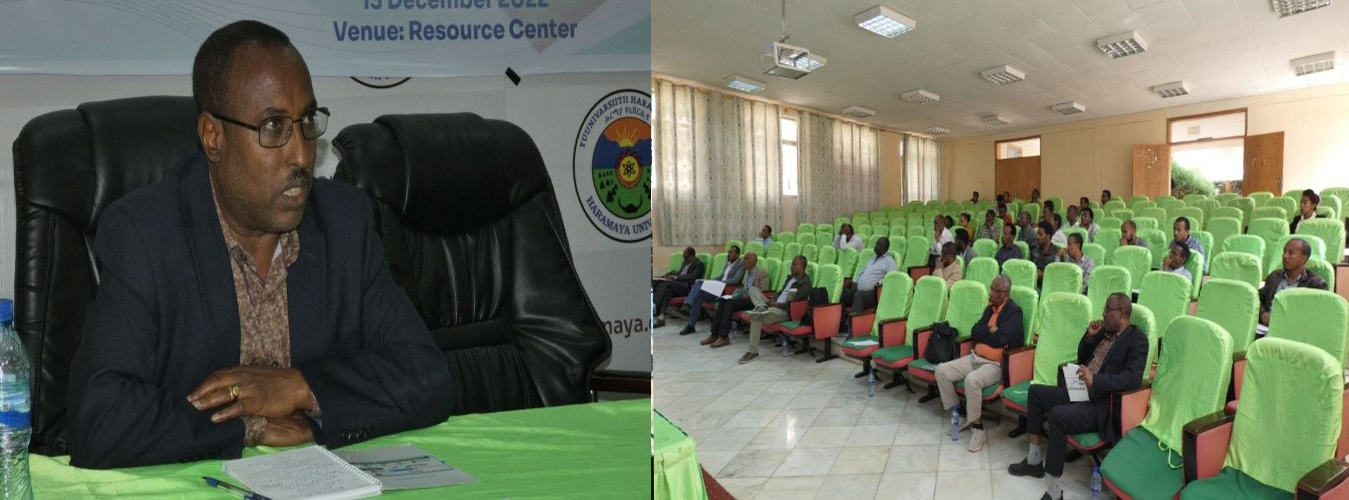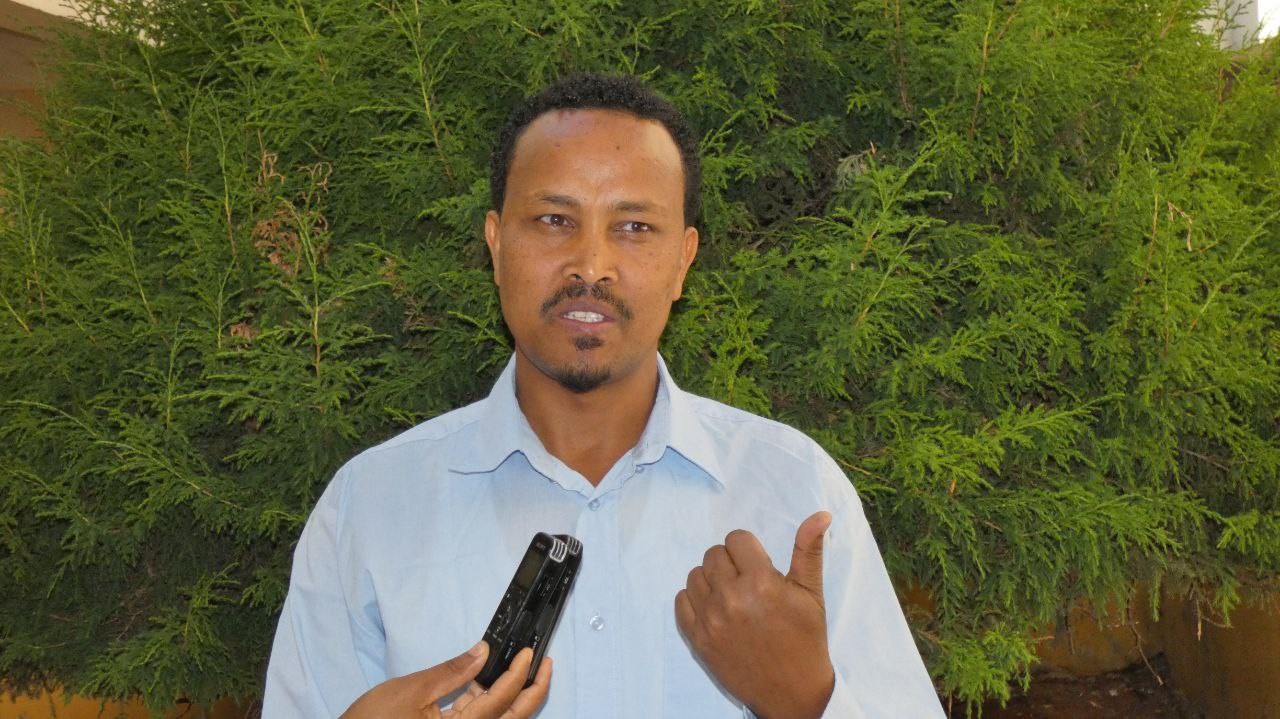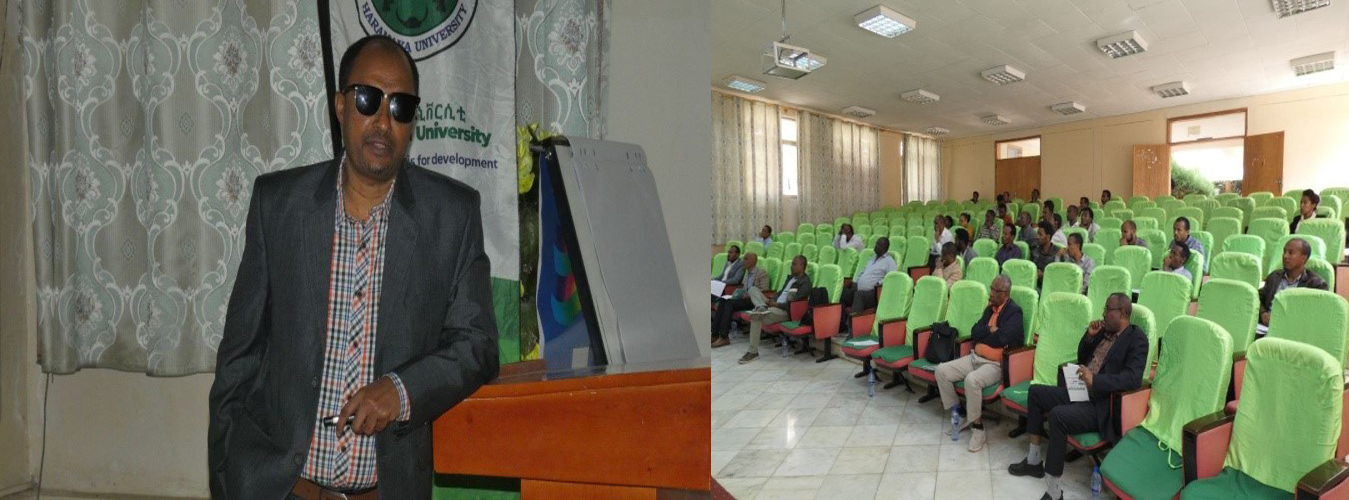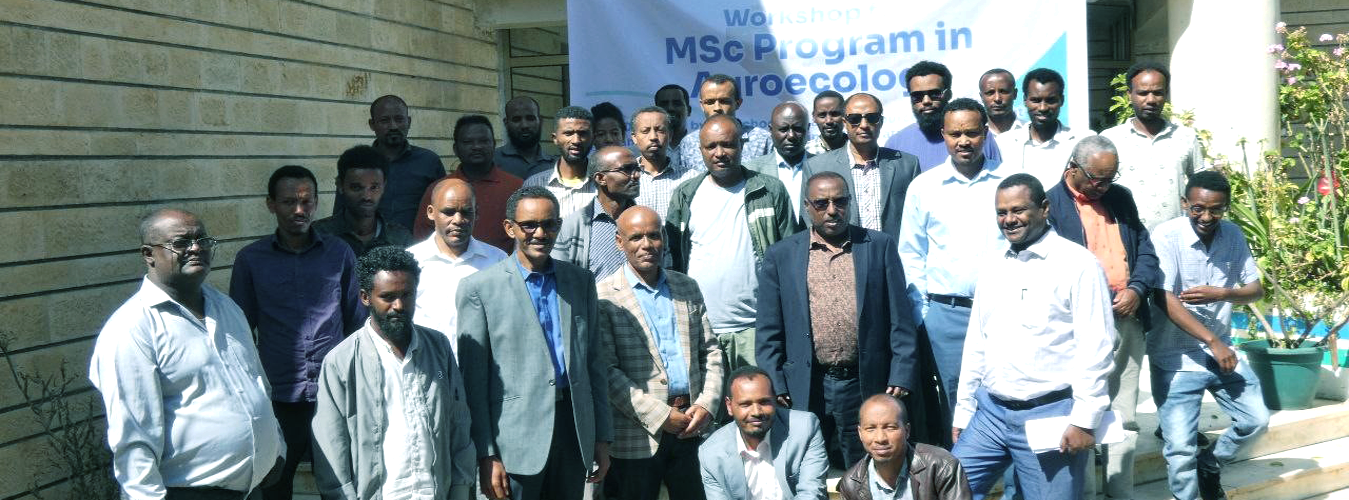“A new paradigm is needed to transform agriculture and food systems.” Mr. Arbo Feyissa in a new curriculum workshop review
Haramaya University’s School of Natural Resources Management and Environmental Sciences, in collaboration with the office of the vice president for academic affairs, organized an internal curriculum review workshop on December 13, 2022, to review a new MSc program in agro-ecology at the university’s resource center.

Professor Mengistu Urge, vice president for academic affairs, the reviewers, college and school staff, and other invited guests attended the workshop.
Mr. Arebo Feyissa, head of the School of Natural Resources Management and Environmental Sciences, said that Haramaya University’s plan is to become a full-fledged postgraduate and research university in the nation. In relation to this, the school is undertaking several initiatives and activities, some of which include modification of existing curriculum, developing new curriculum, establishing partnerships, as well as participating in teaching, research and community engagement in various fields of natural resources management and environmental sciences. Therefore, by organizing such events, the school is fulfilling its responsibilities to the best of its ability.
There can be no sustainable development without protection from environmental risks and shocks and fundamental changes in the way we practice agriculture and manage our natural resources to ensure food and nutrition security. The country is putting its shoulders to the wheel to achieve this. It is at this critical junction that a team was formed to develop the draft curriculum in MSc in Agro-Ecology program in line with the missions of the school, which are to produce proficient professional graduates in diverse fields of natural resource management and environmental sciences, undertake rigorous, demand-driven, problem solving, and cutting-edge research works, and generate and disseminate high-quality knowledge and technologies to the community, according to Mr, Arbo.

Mr. Arebo added that a new paradigm is needed to transform agriculture and food systems and ensure that all people have access to nutritious food at all times. Therefore, we need a new way of thinking that will make possible what has not been possible until today. In this case, Agro-ecology approaches are increasingly recognized as a means to improve the sustainable development of food systems, ensure the regenerative use of natural resources, enhance ecosystem services, and address the need for more socially equitable decision-making by combining traditional and scientific knowledge.

After the presentation of the drafted curriculum and the reviewers’ review to the participants, comments and suggestions were raised, and then it was discussed with the participants. Finally, by including the necessary comments and suggestions, the curriculum has forwarded to the next step.

By: Aweke Ayalneh
Camera: Tewodros Lishan
